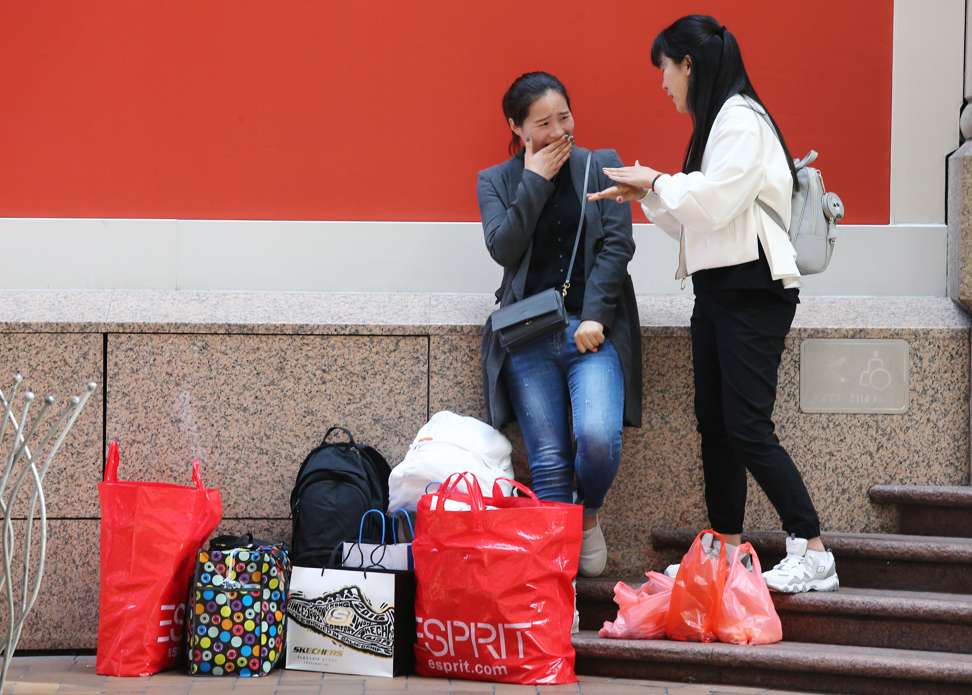
Hong Kong retail sales slip in January despite rise in mainland visitors and Lunar New Year expectations
Decline of 0.9 per cent is 23rd consecutive monthly contraction as overnight visitors cut back on their spending, with a further drop forecast for this year
Shoppers spent less in January even though the Lunar New Year holiday – a traditional shopping season – fell in that month and more mainland people visited.
Sales were down 0.9 per cent, making it the 23rd consecutive monthly contraction, even though the decline was lower than the 2.9 per cent fall in December.
Despite the narrower decline, retail veterans said the troubled sector had yet to hit bottom, as the strong Hong Kong dollar would discourage visitors from buying big-ticket items in the city.
“Currency fluctuations have a bigger impact on valuable products [than smaller items],” said Thomson Cheng Wai-hung, chairman of the Hong Kong Retail Management Association. Shoppers would prefer to buy luxury goods and electrical appliances in places with a favourable local currency, such as Japan, he added.
With the city’s currency pegged to the US dollar, valuable goods have become more expensive, especially for visitors from the mainland, Cheng said.
This partly explains the sharp decline in per capita spending by overnight visitors – from HK$7,234 in 2015 to HK$6,602 last year. The Tourism Board is predicting a further 5.2 per cent decline to HK$6,256 this year.

“The rise in visitor numbers does not necessarily lead to an increase in overall spending,” Cheng said, as the shopping spree by rich mainland visitors – mostly from tier one and two cities – was not likely to happen again.
He expected retail sales would continue to fall this year, though at a slower pace.
For many retailers, the January figures came as a disappointment. The Lunar New Year holiday, which usually sees shoppers from across the border flocking to the city and snapping up festival goods, seems to have failed to give local shops a boost this year.
Sales of durable goods including electrical appliances sank 17.8 per cent in value; jewellery, watches and other luxury items – products usually popular with mainland visitors – dipped 3.9 per cent; and clothing fell by 3.6 per cent, even though the number of mainland visitors jumped 7.7 per cent in January.
“We are even less optimistic about business in February without the help of the Lunar New Year,” Cheng said.
The traditional Chinese holiday fell in late January this year instead of early February last year.
“Looking ahead, the near-term outlook for the retail sales business will continue to depend on the performance of inbound tourism and on whether local consumer sentiment will be affected by the various uncertainties in the external environment,” a government spokesman said.

